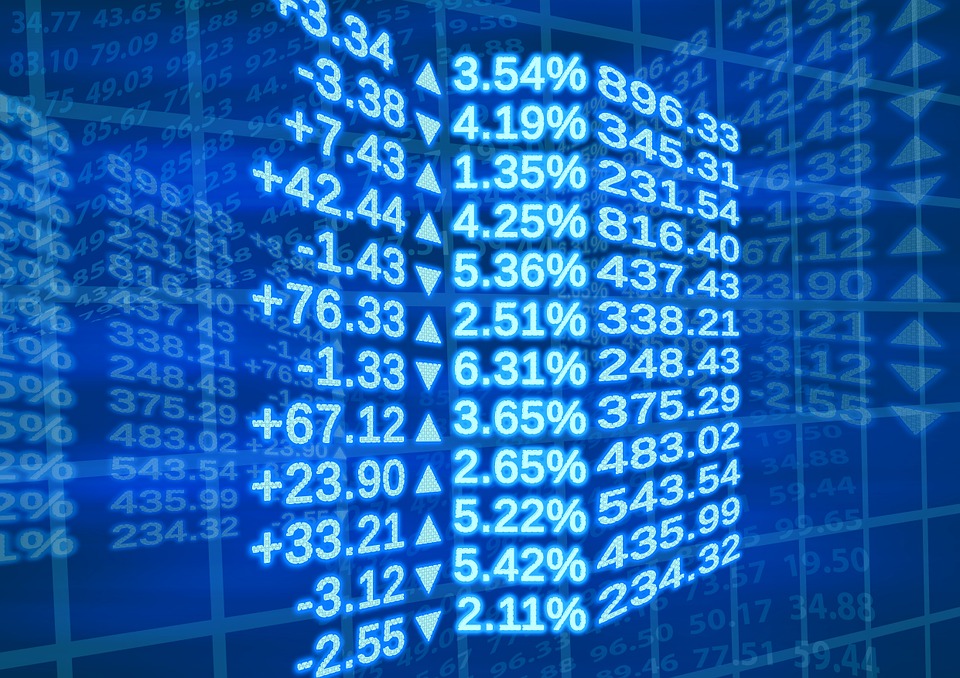GLOBAL MARKETS-Asian shares gain as Fed, PBOC signal continued support
"And we expect growth to slow in the second half of this year due to weakness in exports and investments." The Chinese data also showed retail sales, industrial output and fixed investment growth softening, though not as much as expected. MSCI's broadest index of Asia-Pacific shares outside Japan rose 0.8%, with Hong Kong's Hang Seng leading with 1.3% gains, recovering from this month's earlier falls, which were driven by tech firms.

Asian shares advanced on Thursday as dovish comments by the U.S. Federal Reserve chief and fresh liquidity from China's central bank propped up investor appetite, even as inflationary and growth risks hung over the outlook. Separately, data from China showed its economic recovery losing steam, with second-quarter growth slowing and missing expectations.
"On an annualized quarterly basis, which many developed countries use, China's growth was about 5.3%, which is higher than other countries but not strong by China's standards," said Tomo Kinoshita, global strategist at Invesco Asset Management. "And we expect growth to slow in the second half of this year due to weakness in exports and investments." The Chinese data also showed retail sales, industrial output, and fixed investment growth softening, though not as much as expected.
MSCI's broadest index of Asia-Pacific shares outside Japan rose 0.8%, with Hong Kong's Hang Seng leading with 1.3% gains, recovering from this month's earlier falls, which were driven by tech firms. Mainland Chinese shares rose, with the CSI300 index up 0.7%.
Earlier in the day, People's Bank of China (PBOC) rolled over part of the 400 billion yuan maturing one-year medium-term lending facility (MLF) loans, by injecting 100 billion yuan ($15.46 billion). The move, coupled with the PBOC's surprise reserve requirement ratio cut announced last week, pointed to a loosening policy bias at the PBOC.
"I think it's a signal that - yes, the monetary policy tone is going to be softer, but it's not going to be massive liquidity raining into the market," said Gary Ng, an economist at Natixis in Hong Kong. Japan's Nikkei bucked the trend, with Nikkei falling 1.2%, hurt by worries about rising domestic COVID-19 infections.
European stocks are also on course for a lackluster start, with Euro Stoxx futures down 0.3% and Britain's FTSE futures 0.2% lower. Wall Street shares were mixed on Wednesday, with S&P ending 0.12% higher and Nasdaq down 0.22%. In testimony to the U.S. Congress, Fed Chair Jerome Powell said the U.S. economy was "still a ways off" from levels the central bank wanted to see before tapering its monetary support.
He also said he is confident recent price hikes are associated with the country's post-pandemic reopening and will fade. His comments came after data published this week showed consumer prices increased by the most in 13 years in June.
Bond yields dipped globally, with the 10-year U.S. Treasuries yield slipping to 1.334%, having peaked out at 1.423% on Wednesday. The yield on inflation-protected bonds sometimes called the real yield, dropped to minus 1.027%, near its lowest levels since February.
While Powell's comments fanned buying in bonds, concerns about inflation hardly disappeared. "The CPI numbers were pretty shocking to me," said Nobuyasu Atago, chief economist at Ichiyoshi Securities. "People say rises in used car prices are the main culprit but it's not just that. New cars, home electronic goods, and services are all rising. And the record shows when energy prices rise, that impact normally last for about two years."
In the currency market, Powell's dovish stance put a dent on the U.S. dollar. The euro bounced back to $1.1838 from Wednesday's three-month low of $1.1772. The dollar stood at 109.85 yen after a 0.6% fall on Wednesday.
The Chinese yuan dipped to 6.4628 per dollar in Asia after hitting a three-week of 6.4508 overnight. Gold jumped to a one-month high of $1,829.8 per ounce on Wednesday and last stood at $1,827.9.
Oil prices eased after major global oil producers came to a compromise about supply and after U.S. data showed demand slacked off a bit in the most recent week. U.S. crude futures dropped 0.8% to $72.56 per barrel, slipping further from a seven-year high of $76.98 hit earlier this month.
Brent futures lost 0.7% to $74.27 per barrel. ($1 = 6.4693 Chinese yuan)
(This story has not been edited by Devdiscourse staff and is auto-generated from a syndicated feed.)
ALSO READ
GLOBAL MARKETS-Nikkei leads Asia higher as yen skids; commodities in demand
GLOBAL MARKETS-Nikkei leads Asia higher as yen slips; commodities on a roll
Southeast Asian countries consider ways to boost 'green financing' as region chokes on smog
Satwik recovering from shoulder injury, pulls out of Badminton Asia Championships
Distressed at escalating tensions in West Asia: India










